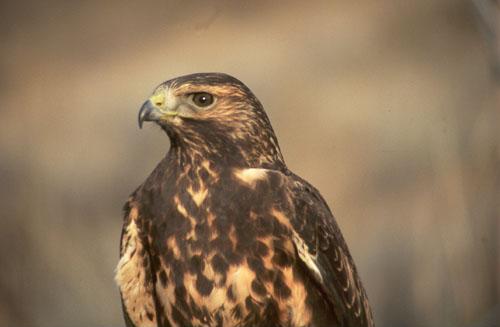
Hawks are birds of prey known for their sharp talons, hooked beaks, and keen eyesight. They are found all over the world and are a common sight in many parts of the United States. There are over 200 species of hawks, each with their own unique characteristics and feeding habits. In this article, we will explore what hawks eat, what eats hawks, and what to feed a hawk in captivity.
What Do Hawks Eat?
Hawks are carnivores and eat a variety of prey, including small mammals, birds, reptiles, and insects. The diet of a hawk depends on the species, habitat, and season. Here are some examples of what different types of hawks eat:
Red-Tailed Hawks – These hawks are found throughout North America and are one of the most common hawk species in the United States. Red-tailed hawks feed on small mammals, such as mice, voles, rabbits, and squirrels, as well as birds, snakes, and insects.
Cooper’s Hawks – Cooper’s hawks are found throughout North America and are known for their agile flying abilities. They feed on birds, such as pigeons, doves, and smaller birds, as well as small mammals, reptiles, and insects.
Sharp-Shinned Hawks – These hawks are similar in size and appearance to Cooper’s hawks but have shorter wings and tails. They feed on small birds, such as finches, sparrows, and warblers, as well as small mammals and insects.
Broad-Winged Hawks – These hawks are found in eastern North America and feed on a variety of prey, including small mammals, birds, reptiles, and insects.
Shouldered Hawks – These hawks are found in the southwestern United States and feed on small mammals, birds, reptiles, and insects.
Harris’s Hawks – These hawks are found in the southwestern United States and feed on a variety of prey, including rabbits, squirrels, birds, reptiles, and insects.
Hawks hunt their prey from the air, using their sharp talons to catch and kill their prey. They use their hooked beaks to tear apart their food and swallow it whole.
What Eats Hawks?
Hawks are apex predators, meaning they are at the top of the food chain and have few natural predators. However, there are some animals that are known to prey on hawks. Here are a few examples:
Eagles – Eagles are larger and stronger than hawks and are known to attack and kill hawks.
Owls – Some species of owls, such as the great horned owl and the barred owl, are known to attack and kill hawks.
Snakes – Some species of snakes, such as the eastern diamondback rattlesnake, are known to prey on hawks.
Coyotes – Coyotes are opportunistic predators and may attack hawks if they have the chance.
Humans – Hawks may also be threatened by human activities, such as habitat loss, hunting, and poisoning.
What to Feed a Hawk in Captivity?
If you have a pet hawk or are caring for a hawk in captivity, it’s important to provide it with a balanced diet that meets its nutritional needs. Here are some guidelines for feeding a hawk in captivity:
Whole prey – Hawks in captivity should be fed whole prey, such as mice, rats, quail, and pigeons. The prey should be fresh, healthy, and free from disease.
Variety – Hawks require a varied diet to ensure they are getting all the nutrients they need. You should offer your hawk a variety of prey to ensure it is getting a balanced diet.
Nutritional supplements – In addition to whole prey, hawks in captivity may require nutritional supplements, such as calcium and vitamin D, to maintain their health.
Clean water – Hawks in captivity should have access to clean water at all times. The water should be changed daily to prevent the growth of bacteria.
Consult a veterinarian – If you are caring for a hawk in captivity, it’s important to consult a veterinarian who specializes in birds of prey to ensure that your hawk is getting the proper care and nutrition it needs.
In conclusion, hawks are fascinating birds of prey that play an important role in our ecosystem. Their diet varies depending on the species, habitat, and season, and they are known to feed on a variety of prey, including small mammals, birds, reptiles, and insects. While hawks are apex predators and have few natural predators, they may be threatened by human activities such as habitat loss and hunting. If you are caring for a hawk in captivity, it’s important to provide it with a balanced diet that meets its nutritional needs and consult a veterinarian who specializes in birds of prey to ensure it is getting proper care.